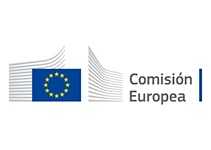
27 de June, 2023
07 de February, 2024
11:59 PM
Technologies/solutions to support circularity for manufacturing (Made in Europe Partnership) (RIA)-HORIZON-CL4-2024-TWIN-TRANSITION-01-05
Investigación/Innovación
Comisión Europea
4000000-6000000 EUR
Escuela de Ingeniería, Ciencia y Tecnología
Manufacturing industry should benefit from the following outcomes:
• Assessing the environmental impact of their products, including the flow of products after their use to reduce product and raw material waste with the support of digital technologies;
• Achieving a considerable net reduction of the environmental impact through the use of innovative modelling and simulation software that allows transport and manufacture monitoring, ultimately driving the decarbonisation of the manufacturing industry;
• Facilitating the development and uptake of digital tools/platforms such as the EU Digital Product Passport, to increase traceability and characterisation of materials and products (e.g. at analytical research infrastructures), including environmental footprint and quality;
• Removing barriers in the uptake of the digital tools from the market will be addressed and the workforce will be empowered through new skills.
Proposals should cover all of the following aspects:
• Develop new approaches of Artificial Intelligence to forecasts the environmental impact, also considering the quantity and state of products after their use;
• Develop innovative simulation and modelling software or built on existing solutions fostering new manufacturing capabilities with a view to a more efficient and more sustainable product design. This optimization process should consider the various steps of the value chain focusing on the environmental impact. Additional ecological impacts arising from the use of the modelling or simulation software should be considered;
• Develop digital platforms/ tools build on existing interoperability architectures (such as the Asset Administration Shell), that will enable the manufacturers to implement the Digital Product Passport initiative. The proposals should focus on gathering relevant data, material and product tracking and tracing, certification protocols for secure re-used materials and components among sectors;
• Enhance the human involvement in the development of the circularity aspects and new technologies.
OBJETIVO/DESCRIPCIÓN
Manufacturing industry should benefit from the following outcomes:
• Assessing the environmental impact of their products, including the flow of products after their use to reduce product and raw material waste with the support of digital technologies;
• Achieving a considerable net reduction of the environmental impact through the use of innovative modelling and simulation software that allows transport and manufacture monitoring, ultimately driving the decarbonisation of the manufacturing industry;
• Facilitating the development and uptake of digital tools/platforms such as the EU Digital Product Passport, to increase traceability and characterisation of materials and products (e.g. at analytical research infrastructures), including environmental footprint and quality;
• Removing barriers in the uptake of the digital tools from the market will be addressed and the workforce will be empowered through new skills.
REQUISITOS CLAVE
Proposals should cover all of the following aspects:
• Develop new approaches of Artificial Intelligence to forecasts the environmental impact, also considering the quantity and state of products after their use;
• Develop innovative simulation and modelling software or built on existing solutions fostering new manufacturing capabilities with a view to a more efficient and more sustainable product design. This optimization process should consider the various steps of the value chain focusing on the environmental impact. Additional ecological impacts arising from the use of the modelling or simulation software should be considered;
• Develop digital platforms/ tools build on existing interoperability architectures (such as the Asset Administration Shell), that will enable the manufacturers to implement the Digital Product Passport initiative. The proposals should focus on gathering relevant data, material and product tracking and tracing, certification protocols for secure re-used materials and components among sectors;
• Enhance the human involvement in the development of the circularity aspects and new technologies.
